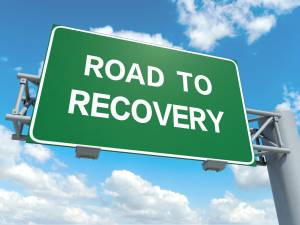Celebrate Recovery on September 30
One of the most debilitating diseases in the world is addiction. It’s estimated that about 4.5 million Canadians suffer from drug addiction, and this figure doesn’t include family members affected by addiction. Fortunately, there is treatment available, but addiction is not curable. Those who have conquered their addiction are considered recovered, not cured. It’s important to realize that many people go on to live productive and healthy lives once they stop using the addictive substance. Since 2012, there’s been a push to celebrate recovery from addictions.
In the United States, September is designated Recovery Month, but here in Canada, we just have Recovery Day. Last year, about 30 cities held special events, and this year, even more will. Recovery Day began with a nine-minute video by filmmaker Greg Williams that had the goal of breaking down the stigma of addiction and focusing on solutions to addiction. The movement began in Vancouver but has trickled across the country to help others.
Myths About Addiction and Treatment
Many times, addicts are seen as bad people making bad decisions, but drug and alcohol addiction is much more complex than we realize. There’s no “one size fits all” to cure addiction. Often, addictions come hand-in-hand with other mental health problems, such as anxiety or depression, and all of the health problems within a person have to be dealt with to find long-term recovery. Here are a few other myths associated with treatment and addiction:
- Addiction is a character flaw.
Addiction is actually a brain disease.
- People can just stop using drugs if they want to.
Drug and alcohol addiction actually changes the brain, which leads to a compulsion to use the substance. Teens become addicted much more quickly than adults because their brains are not fully developed.
- You can’t force a person into treatment for it to be successful.
Many people go into treatment to keep a job or because the legal system ordered them into it.
- Treatment should be a one-shot deal.
Studies show that treatment reduces many of the risky behaviors associated with addiction and it reduces the substance use, but many addicts need continuous treatment to overcome drug and alcohol use. There are some who can quit cold turkey and never go back to using the substance again, but many others need a wide array of services to keep them on the road to recovery. Treatment needs to be individually tailored to address each person’s specific needs.
- After treatment, if a person continues to abuse drugs or alcohol, it’s a hopeless situation.
Relapse into substance abuse is not failure. Addiction is a chronic disorder that makes a person more vulnerable when dealing with work and family problems. Stress can trigger a relapse, especially in the first few months following a release from a treatment program. Don’t give up on an addict, because recovery is a long process that isn’t easy.
A Day to Celebrate Recovery Gives Hope
When people come together to share their recovery stories, it’s proof that treatment does work. Recovery is possible. The awareness Recovery Day brings challenges the societal stigma of addiction, and it builds community to give hope to others who are dealing with this difficult problem.
Recoverydaycanada.com has information about events in different cities. Vancouver is hosting a street festival. Montreal hosted an event at Girouard Park on September 17.
If you miss out on the event in your community, make plans to celebrate with your friends who are in recovery to honor their commitment to their health. Find inspiration and support in what they’re doing to maintain sobriety. Give hope to others who may have friends and family dealing with addiction. Let’s focus on solutions and finding help instead of shaming addicts.


